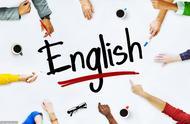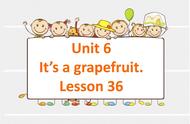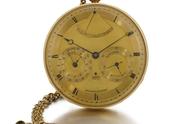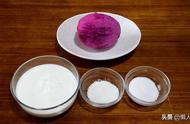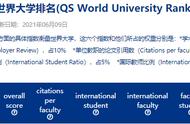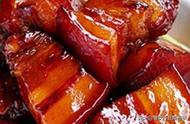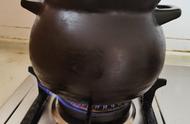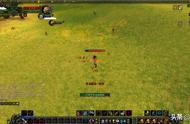Hi. Bob the Canadian here.
你好。鲍勃的加拿大人在这里。
In this English lesson,
在这节英语课上,
I want to help you learn five questions that native English speakers hear all the time.
我想帮助你学习五个以英语为母语的人一直听到的问题。
I've been listening at work and at home for the last few months, and every time I hear a question, when someone asks me a question, I write it down, and I've been keeping track and I've chosen the five questions that I get asked the most often, and I'll give you some suggestions for how you can answer them as well.
在过去的几个月里,无论在工作和家里,我一直在听,每当我听到一个问题时,当有人问我一个问题时,我都会把它写下来,我一直在跟踪,我选择了我最常被问到的五个问题,我会给你一些建议,告诉你如何回答它们。
All of the questions start with these two words, how was.
所有的问题都从这两个词开始,怎么样。
So let's get to the first one.
因此,让我们进入第一个。
Every day, Jen asks me this question. "How was your day?"
每天,Jen都会问我这个问题。"你今天过得怎么样?"
And almost every day, I ask Jen the same question.
几乎每天,我都会问Jen同样的问题。
This question occurs in my life at the end of my day, when I come home from work.
这个问题发生在我生命中,在我一天结束的时候,当我下班回家的时候。
When I walk in the door,
当我走进门时,
Jen will say, "Hi," and I will say, "Hi," and either she will ask me, or I will ask her this question,
Jen会说,"嗨",我会说,"嗨",要么她会问我,要么我会问她这个问题,
"How was your day?"
"你今天过得怎么样?"
So here are a few ways that you can answer that question.
因此,这里有几种方法可以回答这个问题。
By the way, this question happens every day.
顺便说一句,这个问题每天都在发生。
Every day, Jen and I ask each other this question, so it's a very common question.
每天,Jen和我都会互相问这个问题,所以这是一个非常普遍的问题。
There are five ways that you can answer this question and I'm gonna rank them here from the happiest answer to the not-so-happy answer.
有五种方法可以回答这个问题,我将在这里将它们从最快乐的答案到不那么快乐的答案进行排名。
So the happiest answer would be to say, "It was great."
所以最快乐的答案是说,"这很棒"
The second answer that's a little less happy, but still really happy, would be to say, "It was good."
第二个答案是不太高兴,但仍然很开心,那就是说,"这很好"
The answer in the middle that kind of means it was good, but maybe there were some bad parts to it, would be to say, "It wasn't too bad," and then if it wasn't that good of a day, you could say something like, "It wasn't that great," and if it was just not a good day at all, you would say, "It was awful."
中间的答案意味着它很好,但也许它有一些不好的部分,那就是说,"它不是太糟糕",然后如果它不是那么好的一天,你可以说,"它不是那么好",如果它只是根本不是一个好日子, 你会说,"这太可怕了"
So to repeat from happiest to saddest, you would say, "It was great," "It was good,"
因此,从最快乐到最悲伤地重复,你会说,"这很棒","这很好,"
"It wasn't too bad," "It wasn't that great," and, "It was awful."
"这还不错,""不是那么好,"以及"这很糟糕。"
I don't often have awful days, so thank goodness.
我不经常有糟糕的日子,所以谢天谢地。
The next question that I get asked quite a bit, almost every Monday, someone at work will say,
下一个问题,我被问到很多,几乎每个星期一,有人在工作中会说,
"How was your weekend?"
"你的周末过得怎么样?"
The question they will ask me is, "How was your weekend?"
他们会问我的问题是,"你的周末过得怎么样"
Again, starting with how was, and I will ask other people this question as well.
再说一遍,从过去如何开始,我也会问其他人这个问题。
They'll say, "Hey Bob, how was your weekend?"
他们会说,"嘿,鲍勃,你的周末过得怎么样?"
And again, you can answer using all of the same phrases that I just gave you.
再说一遍,你可以用我刚才给你的所有相同的短语来回答。
You could say, "It was great," "It was good,"
你可以说,"这很棒","这很好,"
"It wasn't too bad," "It wasn't that great," or, "It was awful."
"这还不错","不是那么好",或者"这很糟糕""
You'll want to add a little more to the answer, though.
不过,您需要在答案中添加更多内容。
You'll want to tell them something you did on the weekend.
你会想告诉他们你在周末做了什么。
If I was to say, "It was great.
如果我说,"这很棒。
Jen and I took the kids to Niagara Falls," you can see how I added a little bit of information.
珍和我带孩子们去了尼亚加拉大瀑布,"你可以看到我如何添加一些信息。
So when you come into work on Mondays, you will often be asked by someone, "How was your weekend?"
因此,当你在周一上班时,经常会有人问你:"你的周末过得怎么样"
The next question that gets asked quite a bit, but not this year, but normally gets asked quite a bit would be,
下一个问题被问了很多,但不是今年,但通常会被问到很多,
"How was your trip?"
"你的旅行怎么样?"
If you went on a vacation, if you went on a small trip, if you visited somewhere and you come back to work, or the next time you see your family, they might say, "Hey, how was your trip?"
如果你去度假,如果你去一次小旅行,如果你去过某个地方,然后你回来工作,或者下次你见到你的家人时,他们可能会说,"嘿,你的旅行怎么样?"
Again, starting with how was. "How was your trip?"
同样,从过去开始。"你的旅行怎么样?"
And again, all the same answers.
再说一遍,所有相同的答案。
"It was great." "It was good."
"非常棒的体验""总体来说还不错"
I'm forgetting.
我忘了。
"It wasn't too bad," "It wasn't that great," and, "It was awful."
"这还不错,""不是那么好,"以及"这很糟糕。"
And you'll want to add something as well, right?
你也会想添加一些东西,对吧?
Like, "It was awful. The flight had lots of turbulence."
比如,"这太可怕了。这次飞行有很多湍流"
So how was your trip, referring to a trip that you just went on.
那么你的旅行怎么样,指的是你刚刚去的旅行。
The fourth question that you get asked once or twice a year or maybe a little bit more, would be, "How was your birthday?" or, "How was Christmas?" or, "How was New Year's Eve?"
第四个问题,你每年被问到一两次,或者可能再问一两次,是,"你的生日过得怎么样?"或者"圣诞节怎么样?"或者"新年前夜怎么样?"
So you might be talking about an event that someone went to.
所以你可能正在谈论某人去过的活动。
So you might come back to work after a weekend and someone might know that it was your birthday, and they might say, "Hey, how was your birthday?"
所以你可能会在周末后回来上班,有人可能会知道今天是你的生日,他们可能会说,"嘿,你的生日怎么样?"
And again, all the same answers.
再说一遍,所有相同的答案。
"It was great," "It was good," "It wasn't too bad,"
"这很棒","很好","还不错,"
"It wasn't that great," and, "It was awful."
"没那么好,"而且,"这太可怕了"
I have to keep looking at my paper, 'cause I'm forgetting the answers.
我必须继续看我的论文,因为我忘记了答案。
That's not very good.
那不是很好。
As the teacher, I should know all the answers, shouldn't I?
作为老师,我应该知道所有的答案,不是吗?
And you'll want to add more.
而且您需要添加更多内容。
You could say, "It was great.
你可以说,"这很棒。
My family came over, we had a campfire, and we had an awesome birthday cake, and it was just a really fun evening.
我的家人过来了,我们有一个篝火,我们有一个很棒的生日蛋糕,这是一个非常有趣的夜晚。
It was great."
很棒"
So that's the fourth one.
这是第四个。
The fifth question that you get asked a lot, especially for me, is, if you've watched a TV show or a movie, and someone knows that, they might say,
第五个问题,特别是对我而言,是,如果你看过电视节目或电影,有人知道这一点,他们可能会说,
"How was the movie? or, "How was the TV show?"
"这部电影怎么样?"或者,"电视节目怎么样"
So again, using how was, and they're asking about something that you have watched.
所以再一次,使用how was,他们问的是你看过的东西。
So, "How was the TV show?" "How was the movie?"
那么,"电视剧怎么样了?"这部电影怎么样?"
They might ask, "How was the concert?"
他们可能会问:"演唱会怎么样"
Maybe they know that you went to a concert or something like that.
也许他们知道你去过一场音乐会或类似的事情。
So you could reply again with the same.
所以你可以用同样的回答再次。
I know this is repetitive.
我知道这是重复的。
Sorry, I know this is repetitive, but I think repetition is good when you're learning a language.
对不起,我知道这是重复的,但我认为当你学习一门语言时,重复是好的。
So you would respond with,
所以你会回答,
"It was great," or, "It was good," or, "It wasn't too bad," or, "It wasn't that great," or, "It was awful."
"这很棒,"或者,"这很好,"或者,"它不是太糟糕,"或者,"它不是那么好,"或者,"这很糟糕"
Those are all your possible answers.
这些都是你可能的答案。
And then, hey, here is the last one.
然后,嘿,这是最后一个。
If you are talking about anything, if you mention that you did something, someone might ask this question.
如果你在谈论任何事情,如果你提到你做了什么,有人可能会问这个问题。
"How was it?"
"怎么样?"
So instead of referring to the actual event or thing that you did, they'll use the word it.
因此,他们不会提到你所做的实际事件或事情,而是会使用"它"这个词。
So they'll say, "How was it?"
所以他们会说,"怎么样?"
You could say something like,
你可以这样说,
"We went on a canoe trip last weekend," and they might say, "How was it?" and you would say, "It was great."
"我们上周末去划独木舟,"他们可能会说,"怎么样?"你会说,"这很棒"
You might say, again,
你可能会说,再一次,
"We went to a concert this past weekend," and they could say, "How was it?" and you could say, "It was great," "It was good,"
"上个周末我们去看了一场音乐会,"他们可能会说,"怎么样?"你可以说,"这很棒","这很好,"
"It wasn't that great," "It wasn't too bad," "It was awful."
"它不是那么好","它不是太糟糕","这很糟糕"
I think I mixed two of those up there, but that's okay.
我想我在那里混合了其中的两个,但没关系。
That happens sometimes.
这种情况有时会发生。
Anyways, Bob the Canadian here.
无论如何,鲍勃加拿大人在这里。
Five of the very common questions you will hear when you are having a conversation with someone in English.
当您用英语与某人交谈时,您会听到的五个非常常见的问题。
People like to ask how something went after you have done it and they'll do it using those two words, how was, and then the rest of the question.
人们喜欢问你做完之后事情进展如何,他们会用这两个词来做,怎么样,然后是问题的其余部分。
Hopefully this lesson was good for you.
希望这个教训对你有好处。
Thank you so much for watching it.
非常感谢您的收看。
Again, I'm Bob the Canadian.
再说一遍,我是加拿大人鲍勃。
If you're new here, please subscribe to this channel by clicking this red subscribe button over here, and give me a thumbs up if this video helped you learn just a little bit more English, and if you have the time, why don't you stick around and watch another video?
如果你是新来的,请点击这里的红色订阅按钮订阅这个频道,如果这个视频能帮助你学习更多的英语,请点赞,如果你有时间,你为什么不留下来看另一个视频呢?



